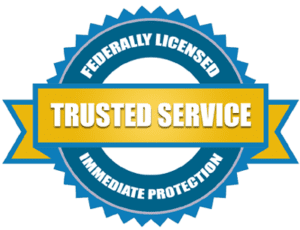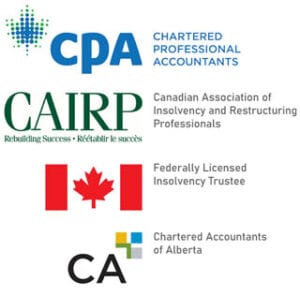HOW MUCH DOES IT COST TO FILE BANKRUPTCY IN ALBERTA?
The need to file bankruptcy in Alberta and the total cost to file bankruptcy in Alberta depends on your personal situation, your family income, the type and number of assets you have, etc. Every person considering bankruptcy in Alberta will bring a separate set of facts and circumstances for review and consideration.
In order to better determine what it will cost to file bankruptcy in Alberta, we have set out five points one needs to consider from an overall cost of bankruptcy perspective:
Bankruptcy Costs to Consider:
1. Basic Payments
There are basic costs for a person to file bankruptcy in Alberta and costs to administer a bankruptcy estate, such as government filing fees, mailing costs, postage, court fees, notices, trustee remuneration, etc., which you will need to cover by making a contribution to your bankruptcy estate. Normally, you can make payments by way of manageable monthly installments to your bankruptcy trustee.
2. Tax Refunds and GST
A person who decides to file bankruptcy in Alberta loses any GST Credits and income tax refunds they may normally receive during the period their bankruptcy estate remains open, and those refunds or tax credits are directed to your bankruptcy trustee by the government, deposited to your bankruptcy estate, and distributed in connection with your bankruptcy in Alberta.
3. Shared Income
Depending on how much you earn while bankrupt, you may be required to pay a portion of your monthly income into your bankruptcy estate. The portion that you are required to pay into your bankruptcy depends on the size of your family, and whether or not your earnings while bankrupt exceed an income standard or guideline set by the federal government and whether you have been bankrupt before. Net income exceeding the income standard or guideline is considered “surplus income”, and must be shared with your creditors and the shared portion paid into your bankruptcy estate monthly. A bankruptcy trustee can explain and review a sample surplus income calculation with you. We recommend that you bring a copy of your most recent pay-stub to any meeting you have with a bankruptcy trustee so that he/she can estimate what your monthly bankruptcy contribution and cost will be.
4. Non-Exempt Assets
Individuals who file bankruptcy are allowed to keep certain assets which are considered exempt from seizure in Alberta. Any assets which are not protected in a bankruptcy or which exceed your Alberta exemption limits are referred to as “non-exempt assets” and must be surrendered to your bankruptcy trustee for sale, with the proceeds from their sale paid into your bankruptcy estate. A list of assets you can keep while bankrupt in Alberta and assets which are exempt from seizure in a bankruptcy are summarized on our bankruptcy exemptions page.
5. New Assets: Increases in Asset Values while Bankrupt
Any assets including inheritances, lottery winnings etc. acquired by you prior to your discharge from bankruptcy or any increase in the value of your assets which exceed your exemption limits while you are bankrupt are subject to attachment by your bankruptcy trustee for the benefit of your creditors. These include windfalls, such as inheritances, lottery, bingo or other winnings, increases in home equity or the value of any other assets which exceed your exemption limits, and any other awards you may receive while bankrupt.
You can contact an Alberta Bankruptcy Trustees who can meet with you and help you understand all the factors that will determine what it will cost to file bankruptcy in Alberta.



